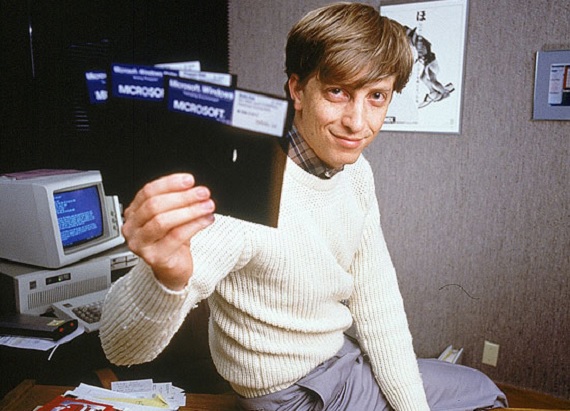With New Data Caps, Comcast Set to Increase Profit From Cord Cutters
There’s an old anecdote, where in the 1980s Bill Gates is talking about the maximum amount of RAM needed moving into the future of computers, stating something along the lines of “640K ought to be enough for anybody.” While the quote itself might not have ever happened, the common sentiment here being “the average consumer won’t need technology to advance past X” is always an interesting topic for discussion.
As most following along closely have learned, Comcast has been rolling out data caps in non-competitive markets, where if a Comcast internet subscriber uses more than 300GB in a given month, they will see a $10 fee assessed per 50GB extra. Users who are often surpassing this 300GB limit are suggested to upgrade to the “unlimited” package for $30-35 more a month. When Comcast reps are asked about this new data cap, their statements tend to maintain a sentiment of “the average user won’t get near to this 300GB, they have nothing to worry about” and “Only heavy usage will put subscribers near this 300GB cap.”
But data use is on a skyrocketing trajectory. Streaming an entire TV show online in a weekend is no longer an outlier, but instead now the norm. Broadband connections are getting faster, enabling HD and Ultra-HD streams to standardize. For example, when Netflix streams a 4K video, it is using 7GB an hour, and this is on pace to become normal video quality within the next few years.
300GB is going to fall well below the average TV streamer’s monthly usage in no time, and Comcast is setting itself up to profit heavily from this growing bandwidth demand. While the majority of people still maintain television cable subscriptions, most are interested and some go through with cancelling their cable for alternative streaming services such as Netflix . Comcast has stated they’re not worried about cord cutting, and what they believe to be ‘media hype’ but certainly are keeping an eye on the evolving entertainment industry. However, it’s starting to make sense why they’re far less concerned about this movement than one might have assumed.
Comcast is working to reset the expectations of broadband consumers by establishing and rolling out data caps now at the 300GB limit while it still seems reasonable to the average person. As 12% of current Comcast customers are subjected to these capped subscriptions, and 1.8 million of their 22 million customers routinely go over the 300GB limit, it’s still early enough for them to establish a new normal. Comcast can continue to market bundled packages as the best deal, especially as they increase the price of un-bundled broadband.
Need proof? Call Comcast and ask for just internet instead of a bundled internet/television package and they’ll pitch you on the idea that it’s far more expensive to only have one and that their package deals are always the best offerings. “Would you rather pay $75 for JUST internet? How about this shiny package that includes TV for just $25 more.”
Eventually this might even be true, as if an internet-only user chooses to sign up for the unlimited internet package for $35 more a month, Comcast can make a far more compelling case to keep consumers paying for television subscriptions as well. By essentially making it more expensive to be a cord cutter, Comcast can squash the growing trend. There will of course always be people who just refuse to pay Comcast or other major cable companies for television service, but for the people on the fence, if the difference only ends up being a few dollars a month because of inflated internet-only prices, the television subscription remains a rational choice.
It’s only a matter of time before 300GB a month is barely enough for the average streamer, and when this time comes, Comcast is going to be set up to profit from heavy internet usage or at least convince more people to continue paying for television bundles to lower their overall data usage.
As more people look to cut the cord, Comcast can continue to profit off of these consumers by increasing the overall cost of internet-only service. Similar to the Gates’ quote above, we can hear the Comcast marketing language on these increases, “Most people will never need 300GB a month.” But we fully expect this to become a very average usage in the near future, and Comcast will be set to profit heavily.

